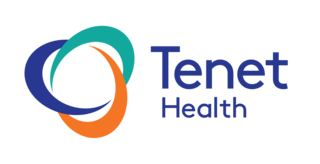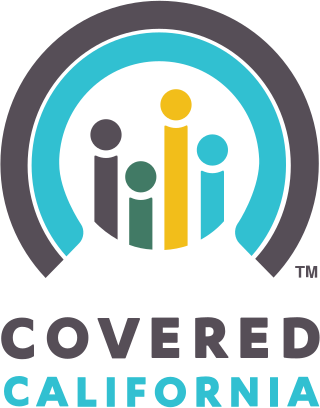Health insurance or medical insurance is a type of insurance that covers the whole or a part of the risk of a person incurring medical expenses. As with other types of insurance, risk is shared among many individuals. By estimating the overall risk of health risk and health system expenses over the risk pool, an insurer can develop a routine finance structure, such as a monthly premium or payroll tax, to provide the money to pay for the health care benefits specified in the insurance agreement. The benefit is administered by a central organization, such as a government agency, private business, or not-for-profit entity.
Medical tourism is the practice of traveling abroad to obtain medical treatment. In the past, this usually referred to those who traveled from less-developed countries to major medical centers in highly developed countries for treatment unavailable at home. However, in recent years it may equally refer to those from developed countries who travel to developing countries for lower-priced medical treatments. With differences between the medical agencies, such as the Food and Drug Administration (FDA) or the European Medicines Agency (EMA), etc., which decide whether a drug is approved in their country or region, or not, the motivation may be also for medical services unavailable or non-licensed in the home country.
Medical billing, a payment process in the United States healthcare system, is the process of reviewing a patient's medical records and using information about their diagnoses and procedures to determine which services are billable and to whom they are billed.
The term managed care or managed healthcare is used in the United States to describe a group of activities intended to reduce the cost of providing health care and providing American health insurance while improving the quality of that care. It has become the predominant system of delivering and receiving American health care since its implementation in the early 1980s, and has been largely unaffected by the Affordable Care Act of 2010.
...intended to reduce unnecessary health care costs through a variety of mechanisms, including: economic incentives for physicians and patients to select less costly forms of care; programs for reviewing the medical necessity of specific services; increased beneficiary cost sharing; controls on inpatient admissions and lengths of stay; the establishment of cost-sharing incentives for outpatient surgery; selective contracting with health care providers; and the intensive management of high-cost health care cases. The programs may be provided in a variety of settings, such as Health Maintenance Organizations and Preferred Provider Organizations.

Tenet Healthcare Corporation is a for-profit multinational healthcare services company based in Dallas, Texas, United States. Through its brands, subsidiaries, joint ventures, and partnerships, including United Surgical Partners International (USPI), the company operates 65 hospitals and over 450 healthcare facilities. Tenet also operates Conifer Health Solutions, which provides healthcare support services to health systems and other clients.
Medical debt refers to debt incurred by individuals due to health care costs and related expenses, such as an ambulance ride or the cost of visiting a doctor.
Health care prices in the United States of America describe market and non-market factors that determine pricing, along with possible causes as to why prices are higher than in other countries.
In the United States, a high-deductible health plan (HDHP) is a health insurance plan with lower premiums and higher deductibles than a traditional health plan. It is intended to incentivize consumer-driven healthcare. Being covered by an HDHP is also a requirement for having a health savings account. Some HDHP plans also offer additional "wellness" benefits, provided before a deductible is paid. High-deductible health plans are a form of catastrophic coverage, intended to cover for catastrophic illnesses. Adoption rates of HDHPs have been growing since their inception in 2004, not only with increasing employer options, but also increasing government options. As of 2016, HDHPs represented 29% of the total covered workers in the United States; however, the impact of such benefit design is not widely understood.
In the United States, direct primary care (DPC) is a type of primary care billing and payment arrangement made between patients and medical providers, without sending claims to insurance providers. It is an umbrella term, incorporating various health care delivery systems that involve direct financial relationships between patients and health care providers.
In the United States, health insurance marketplaces, also called health exchanges, are organizations in each state through which people can purchase health insurance. People can purchase health insurance that complies with the Patient Protection and Affordable Care Act at ACA health exchanges, where they can choose from a range of government-regulated and standardized health care plans offered by the insurers participating in the exchange.
The healthcare reform debate in the United States has been a political issue focusing upon increasing medical coverage, decreasing costs, insurance reform, and the philosophy of its provision, funding, and government involvement.
Bundled payment is the reimbursement of health care providers "on the basis of expected costs for clinically-defined episodes of care." It has been described as "a middle ground" between fee-for-service reimbursement and capitation, given that risk is shared between payer and provider. Bundled payments have been proposed in the health care reform debate in the United States as a strategy for reducing health care costs, especially during the Obama administration (2009–2016). Commercial payers have shown interest in bundled payments in order to reduce costs. In 2012, it was estimated that approximately one-third of the United States healthcare reimbursement used bundled methodology.

Healthcare in the United States is largely provided by private sector healthcare facilities, and paid for by a combination of public programs, private insurance, and out-of-pocket payments. The U.S. is the only developed country without a system of universal healthcare, and a significant proportion of its population lacks health insurance. The United States spends more on healthcare than any other country, both in absolute terms and as a percentage of GDP; however, this expenditure does not necessarily translate into better overall health outcomes compared to other developed nations. Coverage varies widely across the population, with certain groups, such as the elderly and low-income individuals, receiving more comprehensive care through government programs such as Medicaid and Medicare.
Healthgrades Marketplace, LLC, known as Healthgrades, is a US company that provides information about physicians, hospitals, and healthcare providers. Healthgrades is part of RVO Health, a partnership between Red Ventures and Optum, part of UnitedHealth Group. Healthgrades has amassed information on over three million U.S. health care providers. The company was founded by Kerry Hicks, David Hicks, Peter Fatianow, John Neal, and Sarah Lochran, and is based in Denver, Colorado. Jeff Hallock serves as RVO Health's CEO. According to USA Today, Healthgrades is the first comprehensive physician rating and comparison database. The application is part of a trend in health technology in the United States towards consumer-driven healthcare.
HealthSouk is the United States' first health plan without monthly fees. It is a real-time pricing model for health services where fees update every 60 seconds. It allows medical providers to list their prices for different procedures as well as available appointment times.

Covered California is the health insurance marketplace in the U.S. state of California established under the federal Patient Protection and Affordable Care Act (ACA). The exchange enables eligible individuals and small businesses to purchase private health insurance coverage at federally subsidized rates. It is administered by an independent agency of the government of California.
In the United States, the chargemaster, also known as charge master, or charge description master (CDM), is a comprehensive listing of items billable to a hospital patient or a patient's health insurance provider. In practice, it usually contains highly inflated prices at several times that of actual costs to the hospital. The chargemaster typically serves as the starting point for negotiations with patients and health insurance providers of what amount of money will actually be paid to the hospital. It is described as "the central mechanism of the revenue cycle" of a hospital.
Health care finance in the United States discusses how Americans obtain and pay for their healthcare, and why U.S. healthcare costs are the highest in the world based on various measures.
Pager, Inc. is a virtual care platform that offers a variety of services to guide patients and health plan members through the healthcare journey. Pager offers virtual nurse chat and triage, appointment scheduling with assistance from care coordinators, telemedicine, aftercare follow-up, and more while implementing artificial intelligence on its platform.
Babylon Health was a digital-first health service provider that combined an artificial intelligence-powered platform with virtual clinical operations for patients. Patients are connected with health care professionals through their web and mobile application.


